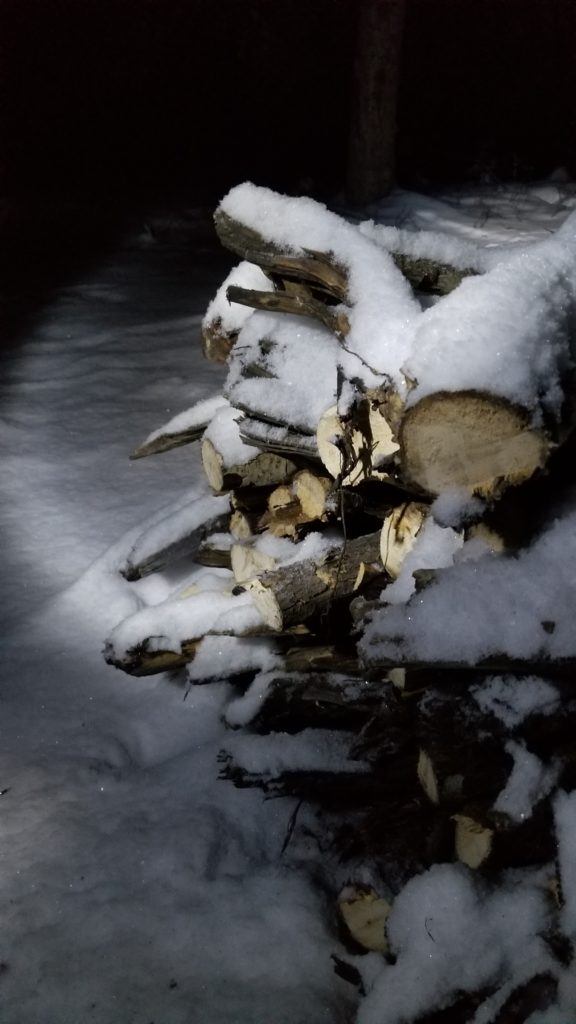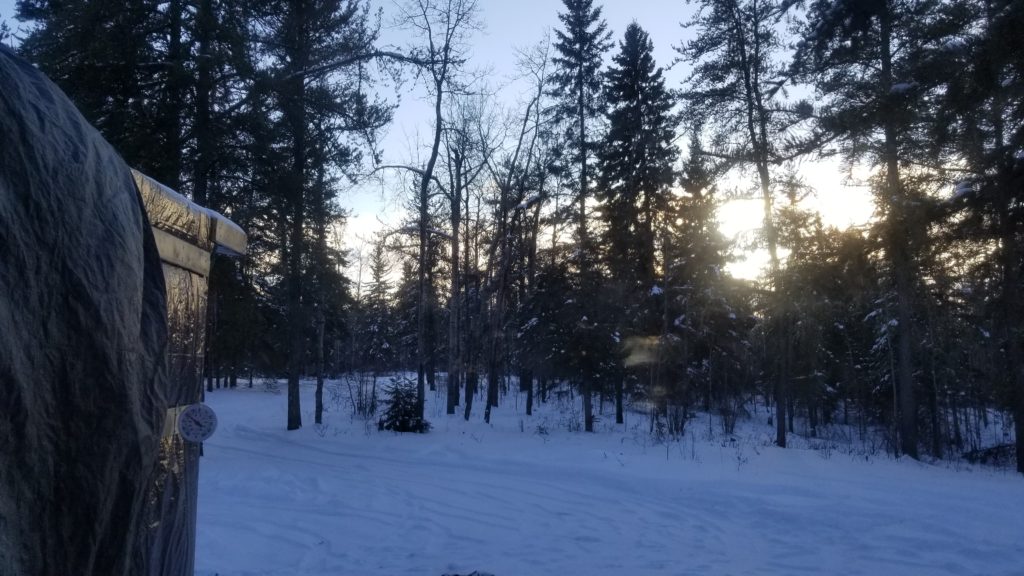Sermon for 20 January 2019
Miracle or
preparations
Qualified to Sleep through the night
A
farm owner woke to the sounds of a terrible storm,
Running
out to get the hired hand up to help him ‘batten down the hatches’
the
hired hand refused to wake up to help.
So
alone the farmer ran to the gate to tie it closed so the animals
could not escape, because the wind could easily blow it open.
The
gate was firmly shut, so that no wind could budge it.
He ran to the far side of the barn with a tarp, where loose shingles would be caught by the wind, more would come off and the insides would be sopping wet from the heavy rain that started.
There
were no loose shingles.
Around he ran, to fix every known problem and inspect for new ones, but everything was fixed and secured against the storm.
The
farmer thought it was a miracle, and went back to bed,
where
as he fell back asleep to the pounding rain and wind, he remembered
that he decided firmly not to hire this man even though he was the
sole man available. This man had said his qualifications were simple:
he could sleep through the night.
It
was a miracle, because the farmer had gone back and hired this man,
who could sleep through the night.
[Include
your own stories of miracles, where you changed your heart, mind, and
strength.]
Surviving Bitter Cold,
The
other morning I woke to -33°C (-27°F).
The propane furnace had long since quit, it was -4°C inside, the generator was too cold to fire up, and the truck would not even turn over. There was a propane bottle heater, but it’s propane was too cold to flow.
So I put the propane bottle in the wood heated shelter to warm it up, put an old insulated tarp over the warmed up heater next to the generator and propped it high enough to light the propane heater without melting the tarp.
And I sat to have breakfast with fresh coffee, made from water boiling all night on the wood stove.
The generator then cooperated nicely, the block heater was plugged in, the battery charger set to the truck battery, and after doing dishes with hot water from the wood stove, I set the charger to 55 amp start mode and the truck fired up. I was only a few minutes late for my appointment. As I was away, the wood heat was blown to warm everywhere nicely including under the skirt to the propane tanks by electric fans powered by the generator. When I returned the furnace fired up nicely and at -25 outside with an overnight low again of -33 I was toasty warm.
It was a miracle, because I had firmly decided I could never get wood heat. It simply was not possible. But I had a change of heart, and after contributions from far and wide, lots of work, and a month or so, there was a wood stove. Otherwise I’d still be cold, maybe like a permanent popsicle.
Jesus’ first miracle
Today’s Gospel is Jesus’ first miracle, the wine at the wedding in Cana. There is more at stake than we may realize at first reading. To run out of wine was a loss of face for the groom’s family, and everyone there. They, friends and family, were expected to bring enough food and drink, potluck style, to help provide for everyone. Having no wine is not like it would be for us. There and then the water was known to be unsafe to drink. At gatherings and celebrations one served wine, which was safe. Having nothing to drink meant the guests had to chose between getting sick with dehydration, or from the water.
At stake for Jesus, as he tells his mother, it is not the right time to demonstrate to people what he can do.
Miracles
When
it comes to miracles by God traditionally we’ve said and
sometimes/some of us have believed that miracles are God stepping
into our universe, breaking the laws we know and getting results we
cannot get, good results. Miracles are God’s inexplicable
intervention in our universe.
Other
people, or sometimes us but only secretly, we’ve said that miracles
simply do not happen. There is always an explanation for how things
happened, we just do not know enough, so we call them miracles. But
miracles are really Nonexistent
I’ve always believed God can inexplicably intervene, and make things happen that simply cannot. God does this very, very rarely. I’ve never liked the traditional message of what a miracle is, that God can miraculously fix everything, because then either God is really cruel because not everything is fixed (and it is unconscionable that somethings are not fixed!) Or we are really incompetent or hard-hearted because if we only prayed more fervently, people would not be suffering and dying, as we speak.
I have believed for a long time that there is a better explanation for miracles that is more powerful, poignant, realistic, hope-filled and hope-giving.
Wine at Cana
Traditionally Inexplicably
Traditionally
this is Jesus’ first miracle. He turns water inexplicably into
wine.
Work natural, just unknown
Practical explanations have existed. The one I always thought hokey was that the jars had a strong wine, a port, in them. Add water and you get wine.
Instant tang had just come on to the market, so this was ‘instant wine’. Really there was no miracle.
Sorry it’s not any port in a storm.
Explicable and …
Say and believe what you will but as for me: I believe that this is God’s universe, and God can do whatever and does … rarely even things inexplicably miracles. I just still do not believe the ‘instant wine’ denial of miracles (and of God’s being with us.)
I
also know God created us intelligent, resourceful, gracious, kind,
loving … and greedy, conniving, and deceitful.
I like the following account best of all because the miracle is something we all can and do ‘bank’ on every day. The text allows that there was enough wine, but someone had secreted away (stolen) the best of the wine. The servants are in the know, either as the doers, participants or as the knowers-of-many-secrets. When Jesus instructs them to fill the big jars with water, they decide to correct the wrong, they retrieve the stolen wine, and, as if it were water, pour it into the jars. The wine brought as a gift for the celebration is once again available.
The
loss of face for the groom’s family and for all their guests is
avoided. The ill health of all the guests is not in the works, and
Jesus gets credit as credit is due: he is God’s son, who knows what
the servants know, and knows how to help everyone put things right in
God’s creation. All is well.
The
miracle: Jesus changes hearts, at least of the servants, and perhaps
of the thieves.
Good faith
Real
difference is what it means to us.
If Miracles are God
just doing the magically inexplicable, then everything that goes
wrong could just as well be fixed, but God does not! Why does God not
just fix everything!?
With that question
begins the slippery slope to full-out doubt and disbelief.
When Jesus’ miracles have a simpler, very possible, explanation that Jesus changes people’s hearts to get them to do something different or new: then we have a real life-giving story.
When we face each
real difficult challenge in our lives, we could just sit on our hands
praying that God would do the inexplicable and fix this for us.
On the other hand,
if Jesus’ miracle is that he changes hearts to get us to do things
we might not have otherwise, then …
Well, every situation becomes Christ calling us and the Holy Spirit equipping us, and all people around us, to give our best, including giving a profound sense of hope that God is working a miracle through our hearts and hands to give other people a good life and solid grounds for hope.
As for me, I like a world, a world of faith, where in God makes good use of us creatures of God, in order to bring about for us and others what God has promised us and wants for us.
As for me, I like a world, a world of faith, where the common wisdom makes sense; namely that what happens to us is not so important as what we choose to do. Only 10% of life is what happens to us; the other 90% is how we respond..
That makes a real difference in the world we live in
[add
your own stories that need a change of heart to turn out well for
all]
Court
I’ve seen more darkness in court than one should ever see, and I rightfully yearn for Justice based on truth, not games and politics and bias’ used to force falsehoods to be facts.
That
darkness will not change on it’s own; it requires a change of
hearts, many hearts, in many places.
Starvation and World Population
While we’ve read/heard this sermon millions of people are starving and many of them have died. Ending hunger is not impossible. We have enough food and the means to distribute it, if we really wanted to. But it, like homelessness and poverty, avoidable diseases and unemployment can only be curbed and ended if many, many hearts change.
Isaiah & Global Warming
A prophet like Isaiah could well tell us that we have it real well, now, but our doom is coming, for we have ignored God’s Word. We have pretended that we can burn fossil fuels to provide luxurious life for some, but not others, all without paying the piper. Global climate change has well started. Extreme weather of the past is now already the norm, and the new extremes are wiping out populations. The ice melt coming will flood the coasts and our most populated cities will be uninhabitable.
If we had ended poverty in the early 80’s when the world’s population was only 4.5 billion, since we know people caught in poverty have many more children, we might not be taxing the limits of the environment to sustain our destructive ways. But now with 7.4 billion people we cannot stop ourselves it seems, not without a colossal portion of those 7.4 billion hearts changing … before it’s too late.
One
way or another, the earth will reduce our population, but it may be
too late for species human.
Paul: Tongues and Interpretation
Paul
writes to the Corinthians. Their gifts are amazing, among them
speaking in tongues and interpretation of what’s said. Paul
recognizes this gift. But he puts it towards the bottom of the list.
Just
speaking in tongues and interpreting it to have an answer for
challenges in life is wonderful, but used too often, it’s just an
easy out, too easy. It’s led to terrible divisions in the
congregation. Wealthy people come with lots of food to the Eucharist,
others have none. Everyone gets bread and wine. But only the wealthy
eat. People caught in poverty are called lazy and held responsible:
bring your own food or go hungry.
The
community needs to see itself as servants of Christ, bringing grace
and life to all around. They do not need an interpretation of someone
speaking in tongues. They need a change of many hearts.
The 2nd Bitter Cold Night
That 2nd night of -33°C I was toasty warm. So were the walls around the wood stove. They were melted halfway through in the morning. The fan had blown the hot hot air against them and melted them away.
The real miracle is that the 2nd morning I was given an old, large insulated heating duct, big enough to be turned inside out to serve as a much needed heat protector for the walls.
Now … let’s hope that all that hard work until 3 in the morning to install the heat shield is sufficient. My heart is ready for a rest, if the preparations are sufficient to allow heat in the coldest time, sufficient to keep me warm, but not so intense so as to melt the walls, that otherwise protect me from the bitter cold.
We wait
Today
we wait for a miracle, but we do not wait for God to intervene as if
by magic to make everything right for us.
We
wait for the real work of Christ and the Holy Spirit. We wait for the
miracle of our hearts changing. We wait for the real work of grace
that starts by changing our hearts, minds and strength. We pray that
we also will turn our ways to God’s will for all.
Amen







